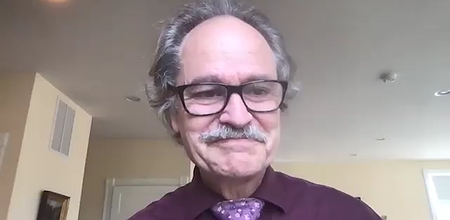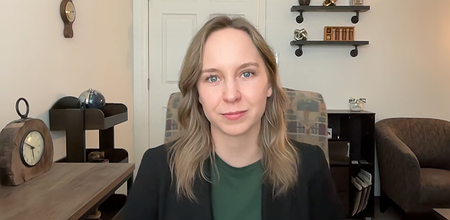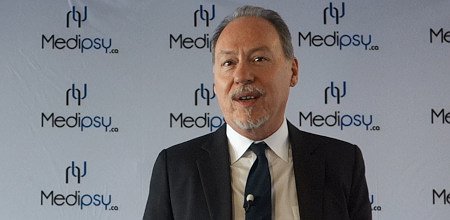- Understand the term embodiment and how our socio-cultural disembodiment and diet culture contributes to our clients’ cycles of failure
- Understand the neurobiology of eating disorders and its connection to self-compassion
- Learn essential brain-based practices for embodied awareness
- Identify the three components of self-compassion and their application and importance to sustaining recovery
Eating Disorders: How Neurobiology, Embodiment and Self-Compassion Heal
Dr. Ann Saffi Biasetti, Psychotherapist
Addressing eating disorders in a world that pathologizes the body
Excerpt:
- 3h of continuing education
- 20 lessons that last from 5 to 15 minutes each
- 1 certificate of achievement
- 1 PowerPoint
- 1 bibliography
- 1 course evaluation
- 7-day money back guarantee
- Unlimited access
- 97% of participants who completed the satisfaction survey declare they would recommend this course to a colleague
Overview
Treating eating disorders requires addressing a dual challenge: sociocultural systems that promote disconnection from the body, and clients struggling to make sense of their internal experience.
Led by Dr. Ann Saffi Biasetti, this course offers a clinically grounded and scientifically supported approach that places the body—not as an object to be managed—but as a central pathway to self-awareness, regulation, and healing. Drawing on the latest insights in neurobiology, embodiment theory, and self-compassion practices, it reframes recovery as a process of reconnection.
Through clinical examples and actionable strategies, you will:
- Deepen your understanding of the relationship between nervous system dysregulation, interoceptive disruption, and disordered eating behaviors, recognizing these behaviors as protective responses to internal chaos .
- Integrate psychoeducational tools on brain functioning and diet culture’s impact, helping clients externalize shame and contextualize their struggles within broader sociocultural forces .
- Develop embodied self-compassion practices that support clients in reconnecting with their internal signals and building a felt sense of safety and self-trust .
- Strengthen your capacity to work with embodiment as a therapeutic process, guiding clients toward a more integrated experience of mind and body, and addressing the often-overlooked physiological dimension of eating disorder treatment.
By the end of this training, you will be equipped with a renewed clinical lens to treat eating disorders not only as cognitive or behavioral conditions, but as disorders of disconnection—and to support recovery through the transformative power of embodied presence.
Accreditation
Short title: Eating Disorders: How Neurobiology, Embodiment and Self-Compassion Heal
Collège des médecins du Québec
For physicians who practice psychotherapy, training recognized by the Ordre des psychologues du Québec is automatically considered as activities adopted by the Collège des médecins, in accordance with Article 3 of the Regulation.
For physicians who do not practice psychotherapy, the College evaluates each recognition request based on the following criteria:
- the relevance of the activity to the practice of the profession
- the skills and experience of the trainer
- the quality of the content and its adequacy with the physician's practice
- the pedagogical framework of the activity
- the quality of the documentation provided
- compliance with the training objectives set out in the regulation
- the presence of a certificate of participation or an evaluation
About the expert

Dr. Ann Saffi Biasetti, psychotherapist, has been a practicing for over 30 years.
She specializes in somatic psychotherapy for eating disorders and trauma recovery. She is an author and speaker as well as trainer on embodiment, women’s empowerment, body image, self-compassion, mind/body duality and recovery. Dr. Saffi Biasetti is a Clinical Social Worker and also holds a PhD in Psychology. She is also a Certified Yoga Therapist (CIAYT) and a Certified Mindfulness and Self-Compassion teacher through the Institute for Meditation and Psychotherapy and the Mindful Self-Compassion program. She currently teaches and supervises therapists in the Self-Compassion for Psychotherapy Program, through the Center For Mindful Self-Compassion, where she is on their panel of experts with her focus on self-compassion and eating disorders.
She has presented at national eating disorder conferences as well as in school systems educating mental health clinicians, teachers, and parents on assessment, intervention and eating disorder prevention. She has been featured on a number of podcasts discussing eating disorder recovery, embodiment training and self-compassion skills and is the author of Befriending Your Body: A Self-Compassionate Approach to Freeing Yourself from Disordered Eating, and of Awakening Self-Compassion Cards: 52 Practices for Self-Care, Healing and Growth. Dr. Saffi Biasetti has held retreats and workshops leading women in empowerment, embodiment and self-compassion training, and is the creator of the Befriending Your Body Program, an 8-week program on somatic and self-compassion skills for eating disorder recovery.
Learning objectives
Learning material
A theoretical course illustrated with clinical examples. This course is composed of videos of 5 to 15 minutes each. The PowerPoint of the course to download.
Syllabus
- PowerPoint
-
Embodiment and disembodiment: Understanding the foundation
- 1. Introduction
- 2. Welcoming the body
- 3. What is embodiment
- 4. What is disembodiment
-
Navigating diet culture and psychoeducation for eating disorders
- 5. Diet culture - a system of oppression
- 6. Reflective questions on diet culture
- 7. A disordering of body and self
- 8. Psychoeducation - turning the gaze inward
-
The nervous system and self-compassion in eating disorder recovery
- 9. Body and nervous system - the missing link in treatment
- 10. The nervous system intake
- 11. Embodying an understanding of the nervous system
- 12. Breathwork practices
- 13. Eating disorders are brain and nervous system based
- 14. The limbic system and interoceptive awareness
- 15. Practice of interoceptive awarness
- 16. Interoception and our nervous system
- 17. Self-compassion - a life giving skill
- 18. The action of self-compassion during recovery
- 19. Self-compassion practice
- 20. Conclusion
- Bibliography
CE Credits
Download a certificate of successful completion.
Audience
This training is intended for mental health professionals.
Your comments
"Good content, would have loved to learn this in person :-)"
A social worker (Canada)
"Great insights for personal growth as a mental health practitioner. An empowering perspective to help and give to clients support in an enriching way.
Gratefully appreciated!
Thank you!"
A nurse (Canada)
"Thank you" (automatically translated)
A psychotherapist (United States)
"Excellent training from which I learned a lot. I can make connections between my knowledge and approaches and those proposed by the speaker. I appreciate being able to listen to certain content again to understand it better.
The pace, structure of the presentation and Dr Biasetti's sense of pedagogy made this professional training not only enjoyable but also highly motivating. I appreciated the alternation between theory and practice during the course.
I'm keen to deepen my knowledge, to read up on certain aspects taught, such as polyvagal theory and AI.
Thank you Dr. Biasetti for the quality of your presentation and your valuable lessons.
Translated with DeepL.com (free version)" (automatically translated)
A psychologist
Registration
Ask a question
Do you have a question? Then email us at contact@asadis.net
Frequently asked questions
-
Is there an evaluation at the end of the course?
To validate the achievement of the learning objectives, a final evaluation in the form of true/false questions is required. It must be completed in order to obtain the certificate of completion.
In addition, an optional self-assessment is offered at the beginning and end of the course, allowing you to measure your progress on the targeted skills.
These evaluations are not graded and are intended primarily to support your professional reflection.
-
I have a disability. Can I receive specific support?
Yes! This training is offered as a pre-recorded video format, without subtitles. If you have a disability, we can provide an adapted alternative (technical assistance for viewing or individual supervision). For any request, please contact our disability coordinator at the following address: contact@asadis.net
-
How long do I have access to the course?
After your registration, the course is accessible anytime and from anywhere with unlimited access.
-
When does the course start?
That is entirely up to you! When you buy a course, you'll receive an access link that you can activate when you want.
-
Is there a student rate?
Yes there is! To learn more, email us at contact@asadis.net.
You may also be interested in:
Legal notice
The courses offered by ASADIS are accredited by different professional organisations. In addition, ASADIS is approved by the Canadian Psychological Association to offer continuing education for psychologists. ASADIS maintains responsibility for the program.
The CPA’s approval of an individual, group, or organization as a CE Sponsor or Provider is restricted to the activities described in the approved application or annual report form. The CPA’s approval does not extend to any other CE activity the Sponsor or Provider might offer. In granting its approval, the CPA assumes no legal or financial obligations to Sponsors, Providers, or to those individuals who might participate in a Sponsor or Provider’s CE activities or programs. Further, responsibility for the content, provision, and delivery of any CE activity approved by the CPA remains that of the CE Sponsor or Provider. The CPA disclaims all legal liability associated with the content, provision, and delivery of the approved CE activity.






